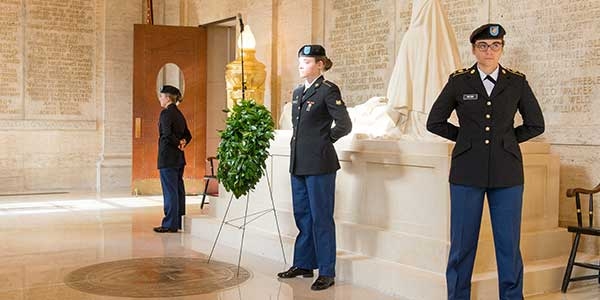By Jonathan L. Walton

In his 1915 book The Christian Life in the Modern World, former Plummer Professor of Christian Morals Francis Greenwood Peabody opines, “the Christian religions is a much larger thing than many of its critics, and some of its defenders, have supposed.” His words still resonate one hundred years later. At a time when some continue to question the purpose of a Christian church at the center of Harvard Yard, and others defend its presence too narrowly, Peabody’s statement serves as an intellectual mantra for me as the current Plummer Professor.
As an institution, the Memorial Church has many roles. For instance, it reminds Harvard women and men of their responsibility to society. The building honors the legacy of those who lost their lives in World War I and II, Korea, and Vietnam. When the Memorial Church was dedicated on Armistice Day, November 11, 1932, the University made an unequivocal statement: service and sacrifice are central to Harvard’s identity. The names on that wall, like the gospel message of Jesus proclaimed from the pulpit every Sunday, attest to the enduring power of love, courage, and dedication to a noble cause greater than the self.
This is one of the reasons that we went to great lengths to honor Harvard’s war dead this academic year. In commemoration of the centennial anniversary of the United States entering World War I, the Memorial Church dedicated substantial resources in order to hand polish each name engraved on the walls of the Memorial Room. We hoisted and dedicated our new bell in the church steeple to replace the original bell that cracked five years ago. John Taylor & Company of Loughborough, England recast the new bell using the original mold with President A. Lawrence Lowell’s quote inscribed along the side: “In memory of voices that are hushed.”
What is more, the Memorial Church challenges Harvard to build upon its usable past to move toward a more productive and just future. This is to say, though the war dead remind Harvard’s sons and daughters that service and sacrifice are central to the educational mission, the Memorial Church casts an unceasing vision of a world where one day we will beat our swords into plowshares and spears into pruning hooks (Isaiah 2:4). And just as the Memorial Church reminds us of our Protestant roots, it also seeks to model an increasingly diverse campus where all persons regardless of gender, race, sexual orientation, ability, culture, or creed feel welcome and affirmed.
Today we understand that the Memorial Church will not survive as simply a mausoleum for a privileged past. To the contrary, we must allow Jesus’s ethic of social inversion and care for those on the margins to stretch us all beyond what is comfortable and convenient. The Memorial Church stands at the center of Harvard Yard beckoning young people to stretch upward to connect with God and outward to connect with one another. This is at the heart of spiritual and intellectual growth: paideia and piety, veritas and caritas.
Throughout the pages of this newsletter you will see the ways we sought to facilitate such growth. Sedgwick University Chaplain, the Reverend Dr. Lucy Forster-Smith, continues to build a multifaith ministry that connects students from across the University. Similarly, the Reverend Alanna Copenhaver, our indefatigable Ministry Fellow, is breathing fresh life into student programming at the College level through ministry breakfasts, House brunches, and student led evening worship services. And our seminarians provide fresh voices to our programming through daily prayers, the work of the Grants Committee, and their distinct forms of Christian witness.
These are the reasons why I resist anyone putting the multifaceted roles of the Memorial Church in a misconstrued box. Our work is grander in scope than imagined by those who question the validity of our presence on campus. Moreover, our call as a University Church is more capacious than a congregational community of comfort (even as we acknowledge the vital need for communities of care). We have the opportunity to help tomorrow’s leaders think differently about their world and their role in it. We do this not by ignoring tough moral issues or avoiding grim realities. But rather we want to embolden students with love and courage to combat perplexing and perennial moral problems with the weapons of love and justice!
